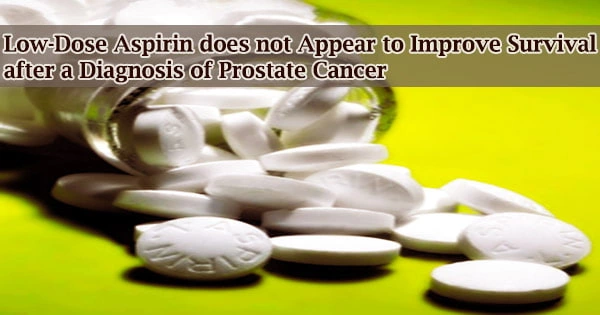At the population level, low-dose aspirin use does not appear to lessen the overall risk of prostate cancer death. However, studies from longer exposure periods suggest that low-dose aspirin may be related with a lower risk of prostate cancer mortality after 5 years from diagnosis.
Annals of Internal Medicine has published the results of a countrywide cohort study. Recent research suggests that taking aspirin can help individuals with prostate cancer live longer, but the evidence is mixed.
Researchers from the Danish Cancer Society Research Center, Aarhus University Hospital, Copenhagen University Hospital and the University of Southern Denmark examined the link between post-diagnosis low-dose aspirin use and prostate cancer mortality using national registries in Denmark. Their research found no persuasive evidence of a low-dose aspirin’s overall preventive benefit in males with prostate cancer.
Aspirin is an anti-inflammatory medicine that lowers blood prostate-specific antigen levels; however, whether this leads to appropriate tumor aggressiveness determination in aspirin users needs to be determined in more research.
Low-dose aspirin use was associated with a lower risk of prostate cancer death among individuals with low Gleason scores, indicating that their prostate cancer was unlikely to grow, and in those who took low-dose aspirin for a long time.
According to the authors of an accompanying editorial from Tampere University and Tampere University Hospital in Finland, improved prostate cancer-specific survival among aspirin users with low Gleason scores could be explained by aspirin users experiencing less inaccurate tumor grading than nonusers.
According to the authors, aspirin is an anti-inflammatory medicine that lowers blood prostate-specific antigen levels; however, whether this leads to appropriate tumor aggressiveness determination in aspirin users needs to be determined in more research.
Future research should look at aspirin exposures that are longer than those reported thus far, as well as the effects of aspirin exposure on illness classification.





